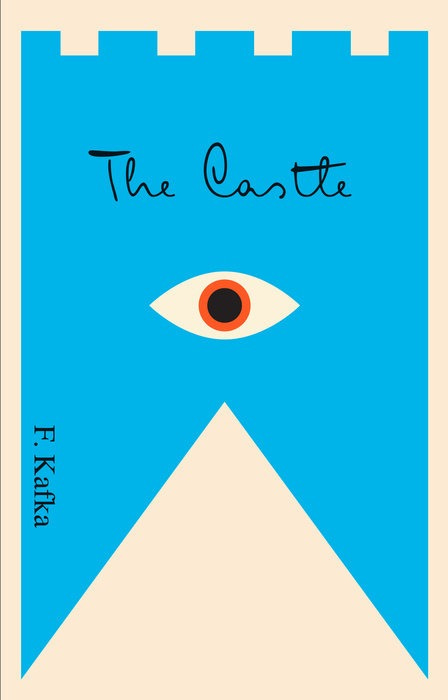Long-time readers (of my work in general) would know I’m a big Franz Kafka fan and I find endless depths in his work. Recently when re-reading The Castle (an inspiration for my Meanjin story The Station) I kept coming back to a scene where K, waiting for Klamm (powerful, mysterious official; a possible gateway to the Castle), comes across a horse and sleigh and has ‘such an urge to enter the sleigh that he could not resist’.
He slips in, promising himself he’ll only stay for a moment, and is in immediate comfort, with ‘so many blankets, cushions, and furs; on each side one could turn and stretch in every direction and always sink down soft and warm. With his arms extended, his head supported by the abundant supply of cushions, K. gazed from the sleigh into the dark house.’ He is lulled by the environment; thoughts of Klamm recede though he is aware dimly he’d rather not be caught here by him; he sips and sips the brandy contained in an inside pocket, forgetting he was supposed to hand it to the coachman.
Electric lights come on and rouse him, K jumps from the sleigh and slams the door but it is not Klamm, only an ‘extremely good-looking man’. In K’s exchange with the man he experiences emotions like shame, regret (if only he had stayed hidden in the sleigh) and then a strong reluctance when the man commands him to come with him: K ‘had the feeling that what he had achieved here was a kind of possession’. He wants to stay put and wait even though the man said he’d miss Klamm whether he stayed or not.
The man directs the sleigh away and leaves. The stable doors are locked. The electric lights go out. And,
it seemed to K. as if they had broken off all contact with him, but as if he were freer than ever and could wait as long as he wanted here in this place where he was generally not allowed, and as if he had fought for this freedom for himself in a manner nobody else could have done and as if nobody could touch him or drive him away, or even speak to him, yet – and this conviction was at least equally strong – as if there were nothing more senseless, nothing more desperate, than this freedom, this waiting, this invulnerability.
(All quotes here are from Mark Harman’s 1998 translation, Schocken Books.)
What is ringing with me, here, at the end of 2024? It is something of the temptation and danger of comfort, of giving oneself over to blankets and booze in a small, contained space. That constant vigilance slipping away for just a moment, letting it… But then electrically switched back on. Maybe not for the right reason, but here and undeniable and almost inseparable from a sense of selfhood or identity: the vigilance is yours and you.
What was Kafka channeling and/or intending (honouring him as a writer who wrote feverishly, but reworked pieces over and over to get them right, too)? There are so many possibilities. Ones that spring to mind:
– The comfy coach is the domestic, rhythmic life that absorbs and smothers the writer, who has agency in remaining firmly watchful and alone. (Kafka stans will know.)
– The comfy coach is the sick bed and people caring for you and that is pleasant and womb-like, but death is a freedom that can only be faced alone.
– Invoking the Kafka we see as prescient and political: The comfy coach is our animal body seeking direct sustenance and comfort, ignoring the effortful, energetic parts of the mind that stay alert to injustice. One must stay vigilant and undistracted to be able to perceive power and face it, and resist sinking back into easeful ignorance.
And there are likely many more possibilities. It’s extraordinary how Kafka’s work does and will continue to resonate on multiple levels: psychically, spiritually, politically, and even physically (this last one something I’d love to one day delve into).
All around me I see people stressed, overburdened and fatigued. After caring for and losing my dad during the pandemic and then helping to care for my mum, as well as having a child and only, in that entire period, having three months off work, I completely understand the temptation of K’s horse-driven bliss bed. Some days I’m so tired I feel like my face is melting off. But the danger of sinking into the sleigh and closing the door feels so real. Of bringing our family and/or friends in with us and justifying to ourselves that we are ‘taking care of our own’. I’m not satisfied by that, but how do we generate the energy for ourselves to keep looking outward, to be cold and frowning and resistant to gentlemen (good-looking or otherwise) bossing us around.
But K’s vigilance is not portrayed as healthy, either. It’s stubborn and misdirected, confused. He is shunning others, in this scene, to wait alone. That can be necessary for visionaries, but it’s also the mode of isolation and paranoia. I think maybe he shouldn’t have forgotten about the coachman. Sharing the bottle would have been good.
I’ve said (maybe controversially) before that literature doesn’t change the world; all you have to do is look at the state the world is in. But it can change individuals, and some would argue: is that not changing the world? Kafka endlessly challenges and changes me, as well as comforting me, and so that’s a communion of sorts. K wasn’t really alone, cold and vigilant in the electric light, because the readers of the future were there with him.
~
Take care, and all best,
Angela
Books | Online courses | Insta | Bluesky | Ko-fi


